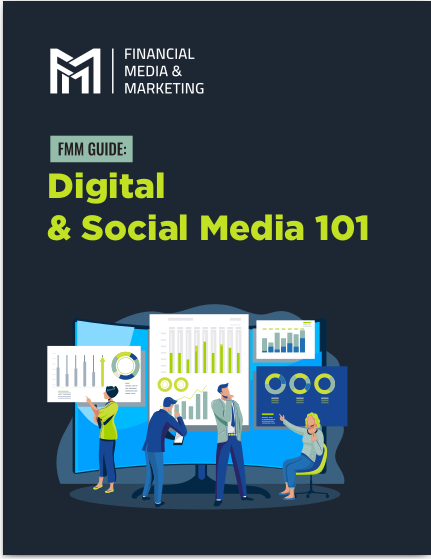Key Takeaways:
- High-quality, engaging content is crucial for establishing authority and building trust as a financial advisor.
- Utilizing various content formats, optimizing for SEO, and promoting across multiple channels can maximize your content’s impact.
Content Marketing Hacks Every Financial Advisor Should Know
In the competitive world of financial advising, content marketing is a powerful tool to attract and retain clients. By sharing valuable information, you can establish yourself as an authority in the field, build trust with your audience, and ultimately grow your business. Here are some essential content marketing hacks every financial advisor should know.
Creating High-Quality, Engaging Content
The foundation of any successful content marketing strategy is high-quality, engaging content. As a financial advisor, your goal should be to provide content that is not only informative but also engaging and valuable to your audience.
Understand Your Audience
To create content that resonates, you need to understand your audience’s needs, preferences, and pain points. Conduct surveys, engage in social media conversations, and analyze your website’s analytics to gather insights about your target audience.
- Client Personas: Develop client personas to represent different segments of your audience. Each persona should include details such as demographics, financial goals, challenges, and preferred content types.
- Client Questions: Pay attention to common questions and concerns your clients have. Use these as topics for your content to ensure relevance and usefulness.
Provide Value
Your content should always provide value. This means offering insights, tips, and information that your audience can apply to their financial situations.
- Educational Content: Write blog posts, articles, and guides that explain complex financial concepts in simple terms. Topics might include retirement planning, investment strategies, tax optimization, and debt management.
- Actionable Advice: Include practical tips and steps that your audience can take to improve their financial health. For example, a step-by-step guide on creating a budget or a checklist for year-end tax planning.
- Real-Life Examples: Use case studies and client success stories to illustrate your points. This not only makes the content more relatable but also demonstrates your expertise and the value you provide to your clients.
Maintain Consistency
Consistency is key to building a strong content marketing strategy. Regularly publishing new content keeps your audience engaged and coming back for more.
- Content Calendar: Develop a content calendar to plan your topics and publishing schedule. This helps ensure that you consistently produce and share new content.
- Quality Over Quantity: While it’s important to publish regularly, focus on quality rather than quantity. High-quality content that provides real value will always perform better than frequent, low-quality posts.
Utilizing Different Content Formats
Variety in content formats can help you reach a wider audience and keep your content fresh and engaging. Different formats can also cater to different learning styles and preferences.
Blog Posts and Articles
Blog posts and articles are foundational elements of content marketing. They allow you to explore topics in depth and provide detailed information to your audience.
- In-Depth Guides: Create comprehensive guides on important financial topics. These can serve as cornerstone content that drives traffic to your site over time.
- Listicles: Write list-based articles that provide quick tips or steps. These are easy to read and share, making them popular with readers.
Videos
Video content is highly engaging and can help you explain complex topics in a more accessible way.
- Educational Videos: Create short videos that explain financial concepts, answer common questions, or provide market updates.
- Webinars: Host webinars on specific topics where you can provide in-depth information and interact with your audience in real-time.
- Client Testimonials: Share video testimonials from satisfied clients. This builds trust and demonstrates the value of your services.
Infographics
Infographics are visually appealing and can simplify complex information, making it easier for your audience to understand.
- Data Visualization: Use infographics to present data and statistics in a visually engaging way. This can be particularly useful for market trends, investment performance, and financial planning strategies.
- Step-by-Step Guides: Create infographics that outline processes or steps, such as creating a budget or planning for retirement.
Podcasts
Podcasts are a growing medium that allows you to reach your audience on the go.
- Expert Interviews: Interview industry experts on various financial topics. This provides valuable insights and establishes your authority.
- Client Stories: Share stories from clients about their financial journeys. This can inspire and educate your audience.
Optimizing Content for SEO
Search engine optimization (SEO) is crucial for ensuring your content reaches the widest possible audience. By optimizing your content for search engines, you can increase your visibility and attract more organic traffic.
Keyword Research
Identify the keywords and phrases your target audience is using to search for financial advice. Tools like Google Keyword Planner, Ahrefs, and SEMrush can help you find relevant keywords with high search volumes and low competition.
- Primary Keywords: Focus on broad terms like “financial advisor,” “retirement planning,” and “investment strategies.”
- Long-Tail Keywords: Use more specific phrases like “best retirement plans for millennials” or “investment strategies for beginners.”
On-Page SEO
Optimize your content to ensure it ranks well in search engine results.
- Title Tags and Meta Descriptions: Write compelling title tags and meta descriptions that include your target keywords. These elements are crucial for attracting clicks from search engine results pages.
- Headings and Subheadings: Use H1, H2, and H3 tags to structure your content and include keywords where appropriate. This helps search engines understand the context and importance of different sections of your content.
- Internal and External Links: Include links to other relevant pages on your website (internal links) and authoritative external websites. This improves your content’s credibility and helps with SEO.
Quality Content
High-quality content that provides value to your audience is more likely to be shared and linked to, which can improve your search engine rankings.
- Original Research: Conduct and publish your own research studies. Original data can attract backlinks and establish you as a thought leader.
- Comprehensive Content: Create long-form content that thoroughly covers a topic. Search engines often favor comprehensive content that provides in-depth information.
Promoting Content Across Multiple Channels
Creating great content is just the first step; you also need to promote it to reach a wider audience. Utilize multiple channels to distribute your content and maximize its impact.
Social Media
Share your content on social media platforms like LinkedIn, Facebook, Twitter, and Instagram.
- Tailored Posts: Customize your posts for each platform. For example, use hashtags on Twitter and Instagram, write longer posts on LinkedIn, and share visual content on Facebook.
- Engage with Followers: Respond to comments and engage with your audience to build relationships and encourage shares.
Email Marketing
Use email marketing to distribute your content directly to your subscribers.
- Newsletters: Include links to your latest blog posts, videos, and other content in your email newsletters.
- Segmented Campaigns: Send targeted emails to different segments of your audience based on their interests and preferences.
Online Communities
Share your content in relevant online communities and forums.
- LinkedIn Groups: Participate in LinkedIn groups related to financial planning and share your content where appropriate.
- Reddit and Quora: Answer questions on Reddit and Quora, providing valuable information and linking to your content when relevant.
Guest Posting
Write guest posts for other reputable websites and blogs in the financial industry.
- High-Authority Sites: Target high-authority sites with a large readership. This can help you reach a new audience and build backlinks to your site.
- Networking Opportunities: Building relationships with other bloggers and industry influencers can lead to more opportunities for collaboration and promotion.
Leverage Content Marketing for Growth
By creating high-quality, engaging content, utilizing various formats, optimizing for SEO, and promoting your content across multiple channels, financial advisors can effectively leverage content marketing to attract and retain clients. Implement these hacks to build your authority, connect with your audience, and grow your financial advisory practice.
Contact Information:
Email: [email protected]
Phone: 8777993433
Bio:
Stan Collins is a Marketing Specialist based in Arizona that focuses primarily on online branding and digital marketing. In addition to helping financial professionals, real estate agents, and other business professionals generate leads and perfect their online identities, Stan Collins also writes educational content about marketing.










